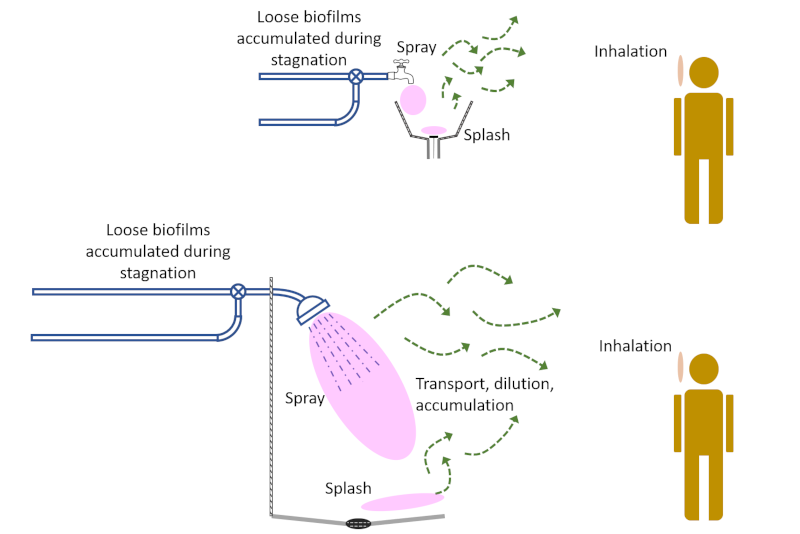
COVID 19 and Building Water
Yet we still need to consider drinking water during the COVID response. Workers are working from home, students are learning virtually and many of us are limiting our trips to restaurants, gyms and other gathering places. These adjustments mean that water is turned over less frequently or may even remiain stagnant for extended periods in many building water systems. Although stagnant water is unlikely to increase COVID risk, water stagnation is well known to promote growth of pathogenic organisms like Legionella pneumophila, the bacterium that can cause Legionnaire's disease. Extended stagnation can even worsen other problems like release of lead into water, if lead pipe or lead-bearing fixtures are part of the building water system.
ESPRI and other water-focused scientists and researchers have developed resources with advice for the staff who manage building water systems with low or no water use for extended periods. Our advice on flushing (turning over the water) building water systems and for worker and occupant safety during flushing are below. These activities are only the beginning of effective building water management and we encourage the owners and operators of all large buildings and other buildings where water quality is a specific concern to implement comprehensive watermanagement programs. The US Centers for Disease Control and Prevention water management program toolkit ( Toolkit: Developing a Water Management Program to Reduce Legionella Growth and Spread in Buildings) is a good resource for developing and sustaining a water management program.
Building Flushing Advice
As buildings have been shut down or used less frequently, building water quality degradation becomes a silent but serious issue. This document is meant as a starting point to bring awareness of the issue of water quality degradation in building plumbing when it is not used, or water use is significantly reduced. We kept this brief and provide it as a general roadmap for how to flush contaminants from the building and get the plumbing system water quality back to pre-stagnation conditions. Each building is different, and flushing will need to be tailored accordingly.
Many thanks to those who reviewed and provided suggestions for this material. Please feel free to circulate and post this information. And stay well in these challenging times.
Advice for Fushing Buildings with Low or No Water Use during the COVID Response
Worker and Occupant Safety during Flushing
Advice for Reducing Risk to Workers during Building Flushing

ESPRI - The Environmental Science, Policy and Research Institute - is a not-for-profit
organization dedicated to public health protection, water conservation and energy conservation.
Our specialty is water quality and our focus is building water systems.
Contact us at [email protected]
Last page update 24 Feb 2021